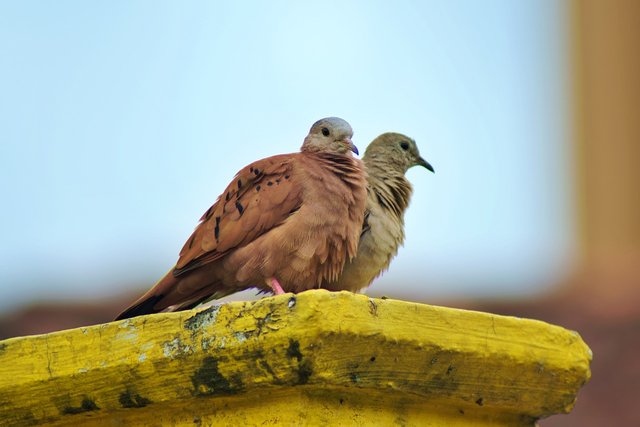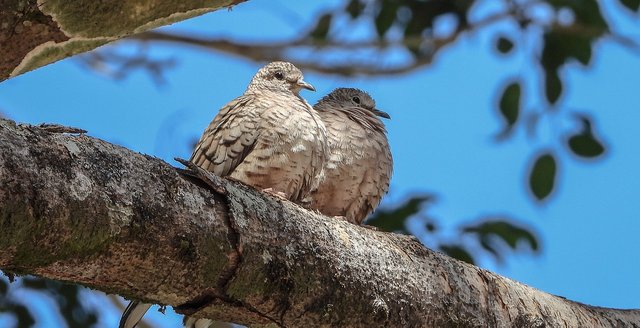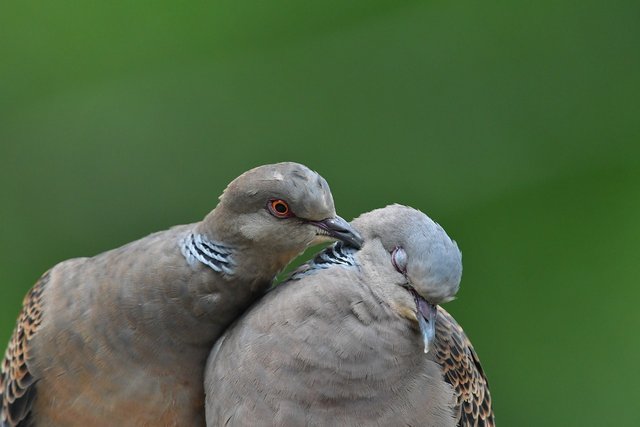The belief in keeping turtle doves for the community is not just an ornamental bird or an ordinary pet. Since ancient times, this bird has been believed to have various benefits that are closely related to its beliefs such as spirituality, and the philosophy of life of the community at that time. Keeping turtle doves is considered to bring good luck, peace, and harmony in household life. In addition, this bird is very suitable for cultivation or keeping at home because turtle doves have very beautiful and attractive feathers and voices. The following are the benefits and beliefs of the community in ancient times:
Symbol of Social Status.
In ancient times, keeping turtle doves was one of the signs of a person's social status, especially among the nobility and priyayi. For the community, turtle doves reflect the authority and prestige of their owners. People who own turtle doves are considered to have high spiritual strength and wisdom, so keeping this bird gives the impression of honor and nobility at that time. Very different from now, turtle doves are not at all interesting among today's society, because turtle doves cannot imitate and share sounds with other birds, very different from magpie birds for example, besides having a unique voice and being able to imitate the sounds of various other types of birds.
According to belief, the main benefit of keeping turtle doves is their nature which can bring calm and peace. The melodious and calming sound of turtle doves is believed to be able to expel negative energy from the house and its surroundings. Ancient people believed that the sound of this bird could eliminate anxiety and help create a harmonious atmosphere at home. In addition, for those who like to meditate or seek inner peace, listening to the sound of turtle doves is believed to help achieve peace of mind. Especially when people have problems in the family, both in terms of economy and other social matters.
The belief that turtle doves bring good luck was also very popular among ancient people. There are several types of turtle doves that are believed to have different spiritual powers, such as the katuranggan turtle dove, which is believed to bring fortune, blessings, and success to its owner.
For example, turtle doves that have certain colors or feather patterns are considered to be birds that bring positive influences to the lives of their owners. Keeping turtle doves is considered a form of effort to bring good luck and goodness.

Balancing Positive and Negative Energy.
In the beliefs of people in ancient times, being able to regulate the balance between positive energy such as goodness and negative energy such as evil is very important. Turtle doves are considered animals that are able to maintain this balance. Therefore, keeping turtle doves at home is believed to help maintain harmony in the family, avoid conflict, and protect against disturbances from evil spirits. Some people even believe that turtle doves have the ability to detect negative energy or supernatural things around the house. People in ancient times also believed that keeping turtle doves could improve the spiritual quality of their owners. In their teachings, this bird is often associated with a person's spiritual journey. The soft and rhythmic sound of turtle doves is believed to be able to help their owners in the process of deepening spirituality and achieving a deeper understanding of life. Thus, turtle doves are often used as friends for those who are seeking enlightenment or a better path in life.
Keeping turtle doves for people is not just a matter of pleasure or hobby, but also has deep spiritual and philosophical meaning. From bringing peace to providing good luck, turtle doves are believed to have various benefits related to life balance, spirituality, and harmony. For the community, turtle doves are a symbol of greatness that reminds them of the importance of maintaining good relationships with fellow humans, nature, and their spirituality.


Downvoting a post can decrease pending rewards and make it less visible. Common reasons:
Submit